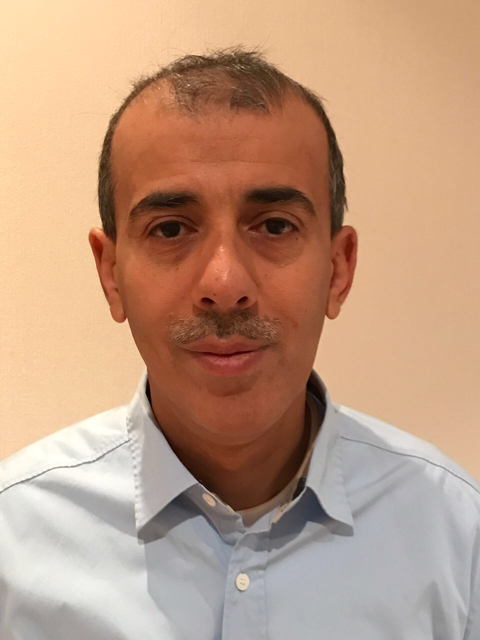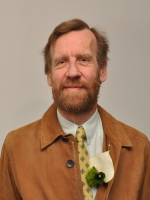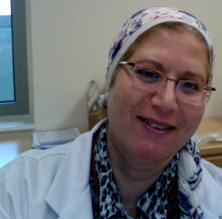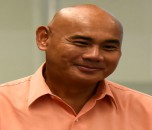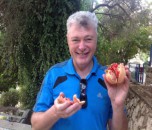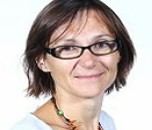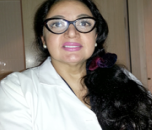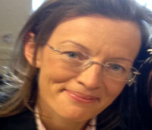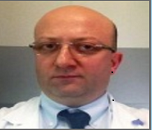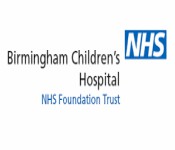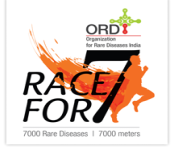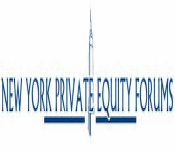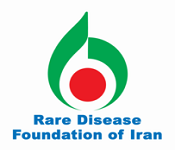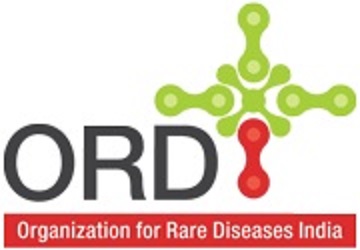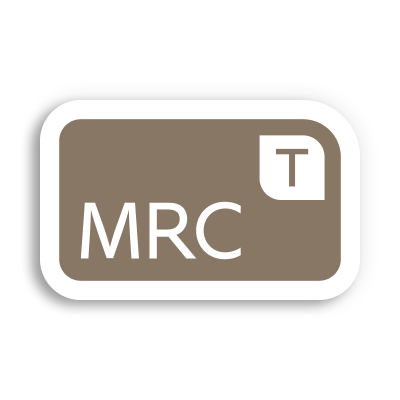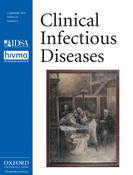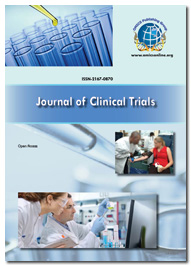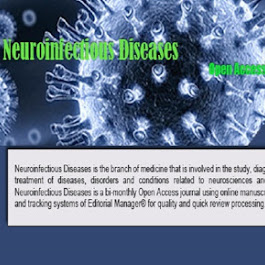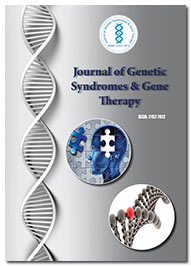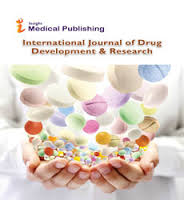Theme: Novel Approaches to explore the emerging insights in the Rare Diseases Research
Rare Diseases Congress 2017
ConferenceSeries Ltd invites all the participants from all over the world to attend “2nd World Congress on Rare Diseases and Orphan Drugs” during June 29-30, 2017 at London, UK which includes prompt keynote presentations, Oral talks, Poster Presentations and Exhibitions and B2B Meetings.
ConferenceSeries Ltd organizes 1000+ Global Events inclusive of 300+ Conferences, 500+ Upcoming and Previous Symposiums and Workshops in USA, Europe & Asia with support from 1000 more scientific societies and publishes 700+ Open access journals which contains over 30000 eminent personalities, reputed scientists as editorial board members.
Rare Diseases Congress-2017 meeting provides a forum for researchers in the field to share advances in Rare Diseases and orphan drugs related topics ranging from basic scientific research to biomarkers and clinical development, and it also throw a light on thought provoking topics and recent research in the field of infectious diseases related issues related to Rare Diseases. Rare Diseases Conference 2017 is a trending conference which brings together efficient academic scientists, super specialists, young researchers, professors, and doctors making a perfect platform to gain experience, and evaluate emerging health care strategies across the globe to discuss about the Rare Diseases and Orphan Drugs. Rare Diseases 2017conference involve in organizing the International symposiums, B2B meetings, International workshops along with the keynote and plenary presentations to discuss the research scope in the field of Rare Diseases.
Target Audience:
· Rare Disease Associations and Societies
· Medical Colleges
· Pharmaceutical Companies and Industries
· Health care professionals
· Students, Scientists
· Researchers
· Training institutes
· Drug manufacturing companies
Why to attend?
World Congress on Rare Diseases is giving a worldwide stage to analysts that afford new insights into the concealed rare diseases. An expanding number of distinguished rare diseases makes it makes it important to complete propelled research here of irresistible sicknesses. World-eminent speakers, improvements, and the most up to date upgrades are particular components of this gathering and with individuals from around the globe concentrated on finding out about uncommon illnesses and its advances; this is your best chance to achieve the biggest collection of members, conduct presentations, disseminate data, meet with potential scientists, trade learning on late improvements and make an unmistakable imprint by invigorating development at this event.
Tracks
· Rare Disease and its Cause
· Pediatric Rare Diseases
· Rare Aging Disease
· Rare Disease in oncology
· Rare Ophthalmological Diseases
· Rare Metabolic Diseases
· Genetic Diseases and Disorders
· Neurological Diseases
· Rare Pulmonary Diseases
· Hematological Diseases
· Nursing and Rare Disease
· Therapies for Rare Diseases
· Potency of Orphan Drugs
·Strategies for Diagnosis &Treatment
· Legal Issues Related to Rare Diseases
· Current Research on Rare Diseases
LifeArc is the new name for MRC Technology, a medical research charity with a 25 year legacy of helping scientists and organisations turn their research into treatments and diagnostics for patients.
The new name reflects the charity’s purpose: to be the arc or bridge between research and improving patients’ lives.
LifeArc is pioneering new ways to turn great science into greater patient impact. It brings together a network of partners to tackle specific diseases and directly funds academic and early stage research.
So far, LifeArc’s work has helped to develop four drugs (Keytruda®, Actemra®, Tysabri® and Entyvio®) and a test for antimicrobial resistance.
Track 1: Rare Disease and its Cause
Rare diseases are a multiple heterogeneous group of diseases with a little in like manner aside from of their irregularity affecting with influencing the individuals. 80% of rare diseases have distinguished hereditary inceptions and others may have some ecological variables, there are wide and several which are yet to be examined. Some rare diseases are acquired while some influenced individuals go about as Diseases examined. Despite irregularity, they represent an important medical and health problem because of their occurrence. For multiple rare diseases have no treatment, but if it exists and if started on time as accessibly available to patients, there is a good prognosis for them to be able for normal life. The issues of patients reflected and influenced by rare diseases are identified with the absence of diagnosis and timely undergoing as well as their treatment or counteractive action.
Related Conferences
Annual Conference on Rare Diseases and Orphan Drugs, Oct 26-27, 2016 USA; 2nd International Conference on Flu, Oct 31- Nov 2, 2016 in San Francisco, USA;4th World Congress on Infection Prevention and Control, Nov 28-29, 2016 (9 Keynotes, 1 Special session, 2 Days,1 Event) Valencia, Spain; International congress on Infectious Diseases, May 11-12, 2017 Barcelona, Spain;5th International Congress on Bacteriology and Infectious Diseases, May 25-26, 2017 USA;4th International Conference on Chronic Obstructive Pulmonary Disease (COPD), May 29-31, 2017 Japan; International Conferences on Rare Diseases and Orphan Drugs Cape 19-22 Oct 2016, South Africa;19th International Conference on Infectious Diseases , Jan 26 - 27, 2017 Sydney Australia; Advances in Basic and Translational Research in Tropical Infectious Diseases ,Mar 12-17, 2017 Hotel Galvez Galveston, TX; Keystone Symposia: New developments in our basic understanding of tuberculosis, Jan 14-18, 2017 Canada; 35th UC Davis Annual infectious diseases conference Feb 03-04, 2017 USA
Related Societies:
Rare Diseases Europe; Rare Disorders Society; BPSU – Rare; Canadian Society for Mucopolysaccharide and Related Diseases; Rare Diseases UK, Rare Diseases South Africa, Students 4 Rare Diseases, National Organization for Rare Disorders; American Association of Pharmaceutical Scientists
Track 2: Pediatric Rare Diseases
Rare Diseases associated with Pediatric Condition is an inherited, genetic condition. Patients have recurring fevers, which occurs almost daily with the disease development in Pediatric children. They also present with delayed development, skin rashes and unique and rare conditions in facial features such as thicker lips, swollen eyelids and eye balls. Children will develop swelling around the eye sockets, and also clubbing of fingers and toes and gradual enlargement of the liver and also growth of multiple cells. Over time there is a loss of muscle control and some wasting of brain tissue. The specific condition in which the heart muscles become diseased and the heart becomes enlarged and weak. Babies with the infantile form usually leading to death before their first birthday due to the rare condition in heart failure and respiratory weakness.
Related Conferences
4th International Conference on Sexually Transmitted Diseases, Jun 19-20, 2017 UK ;International Conference on Vector Borne Diseases ,June 29-30, 2017 Philadelphia, USA;3rd International Conference on Retroviruses and Novel Drugs ,July 27-28, 2017 Vancouver, Canada;3rd International Conference on Influenza ,Aug 21-22 2017 Birmingham, UK;3rd World Congress on Infectious Diseases ,Aug 21-23, 2017 California, San Francisco, USA; 24th Conference on retroviruses and opportunistic infections Feb 13-16, 2017 USA; Keystone Symposia-Malaria: From innovation to eradication, Feb 19-23, 2017 Uganda; Australasian society for infectious diseases annual scientific meeting, Mar 29-Apr 01, 2017; ICHA 2017: 19th International Conference on HIV and AIDS ,May 25-26, 2017 London, UK; STI & HIV World Congress ,July 9-12, 2017 Rio de Janeiro, Brazil
Related Societies:
American Pediatric Society; Society for Pediatric Research; ESPR European Society for Paediatric Research; The Latin American Society for Pediatric Research; Pediatric Academic Societies; Rare Diseases UK, Rare Diseases South Africa, Students 4 Rare Diseases, National Organization for Rare Disorders; American Association of Pharmaceutical Scientists
Track 3: Rare Aging Disease
The regularity of rare diseases among adults individuals and elderly is not infrequent as the youngsters experiencing a specific unique disease and are under treatment may progress the same life long. Bringing focus on this zone of infections would be rapid and quicken the exploration and disease treatment and in this way would be effective in treating most extreme number of rare ailments. Studies have shown that 37.5% had ordinary lifespan, 25.7% potentially lethal during childbirth or before 5 years of age, 36.8% diminished lifespan.
Related Conferences
4th International Conference on Sexually Transmitted Diseases, Jun 19-20, 2017 UK ;International Conference on Vector Borne Diseases ,June 29-30, 2017 Philadelphia, USA;3rd International Conference on Retroviruses and Novel Drugs ,July 27-28, 2017 Vancouver, Canada;3rd International Conference on Influenza ,Aug 21-22 2017 Birmingham, UK;3rd World Congress on Infectious Diseases ,Aug 21-23, 2017 California, San Francisco, USA; 24th Conference on retroviruses and opportunistic infections Feb 13-16, 2017 USA; Keystone Symposia-Malaria: From innovation to eradication, Feb 19-23, 2017 Uganda; Australasian society for infectious diseases annual scientific meeting, Mar 29-Apr 01, 2017; ICHA 2017: 19th International Conference on HIV and AIDS ,May 25-26, 2017 London, UK; STI & HIV World Congress ,July 9-12, 2017 Rio de Janeiro, Brazil
Related Societies:
American Society on Aging; International Society on Aging and Disease; Aging and Society; Society for Pediatric Research; ESPR European Society for Paediatric Research; The Latin American Society for Pediatric Research; Vitreo Retina Society of IndiaGlaucoma Society of India; Uveitis Society of India Oculoplastics Association of India; Strabismological Society of India
Track 4: Rare Diseases in Oncology
Rare Oncology disease has a mandate to accost the recent challenges presented by rare cancers and diseases as well cancers that may be predominant in medically unreasonable populations. CCR investigators, both at the laboratory bench and in the clinic, are actively involved in this research studies. In many cases, the knowledge CCR’s investigators gain from studying and treating rare cancer diseases and related disorders provides them with insights into the mechanisms that underlie other more common malignant syndromes. It is very worthy consideration for oncologists to keep updated of the latest advancements in oncology, as changes in management of cancer are shown quite common. All eligible patients in whom cancer progresses and for whom no general of care treatment strategies are available should be enrolled in a clinical trial.
Related Conferences
Annual Conference on Rare Diseases and Orphan Drugs, Oct 26-27, 2016 USA; 2nd International Conference on Flu, Oct 31- Nov 2, 2016 in San Francisco, USA;4th World Congress on Infection Prevention and Control, Nov 28-29, 2016 (9 Keynotes, 1 Special session, 2 Days,1 Event) Valencia, Spain; International congress on Infectious Diseases, May 11-12, 2017 Barcelona, Spain;5th International Congress on Bacteriology and Infectious Diseases, May 25-26, 2017 USA;4th International Conference on Chronic Obstructive Pulmonary Disease (COPD), May 29-31, 2017 Japan; International Conferences on Rare Diseases and Orphan Drugs Cape 19-22 Oct 2016, South Africa;19th International Conference on Infectious Diseases , Jan 26 - 27, 2017 Sydney Australia; Advances in Basic and Translational Research in Tropical Infectious Diseases ,Mar 12-17, 2017 Hotel Galvez Galveston, TX; Keystone Symposia: New developments in our basic understanding of tuberculosis, Jan 14-18, 2017 Canada; 35th UC Davis Annual infectious diseases conference Feb 03-04, 2017 USA
Related Societies:
American Society of Clinical Oncology; American Cancer Society; European society of Pediatric Hematology Oncology; Indian Cancer Society; European Society of Surgical Oncology; European Oncology Nursing Society; Canadian Cancer Society; European Society for Therapeutic Radiology and Oncology; American Society of Clinical Oncology; European Society of Gynecological Oncology; European Society of Surgical Oncology
Track 5: Rare Ophthalmological Diseases
Ophthalmological Diseases in which Rare, inherited vision disorder in which an individual has frequent or no ability to see color. People with achromatopsia also generally experience some vision loss, especially in brightest light, to which they are extremely cause vision impairment. The severity of the disease achromatopsia varies different. Although there will be no cure or treatment for this disorder type, people with rare Ophthalmological conditions can manage its symptoms. The main thing they get involved as they can wear sunglasses or tinted contact lenses to cope with bright light. They can use magnifiers and other devices for low power vision to help them read, and telescopes to help them see distant objects. Since ophthalmologists perform operation to eyes, and also involving with both surgical and medical specialists to treat the rare conditions in eyes. A multitude of diseases and conditions can be diagnosed with rare eye problems affecting all over
Related Conferences
4th International Conference on Sexually Transmitted Diseases, Jun 19-20, 2017 UK ;International Conference on Vector Borne Diseases ,June 29-30, 2017 Philadelphia, USA;3rd International Conference on Retroviruses and Novel Drugs ,July 27-28, 2017 Vancouver, Canada;3rd International Conference on Influenza ,Aug 21-22 2017 Birmingham, UK;3rd World Congress on Infectious Diseases ,Aug 21-23, 2017 California, San Francisco, USA; 24th Conference on retroviruses and opportunistic infections Feb 13-16, 2017 USA; Keystone Symposia-Malaria: From innovation to eradication, Feb 19-23, 2017 Uganda; Australasian society for infectious diseases annual scientific meeting, Mar 29-Apr 01, 2017; ICHA 2017: 19th International Conference on HIV and AIDS ,May 25-26, 2017 London, UK; STI & HIV World Congress ,July 9-12, 2017 Rio de Janeiro, Brazil
Related Societies:
American Academy of Ophthalmology; American Association for Paediatric Ophthalmology; Association for Research in Vision and Ophthalmology; European Society of Retina Specialists; Asia Pacific Glaucoma Society; European Society of Cataract & Refractive Surgeons; Ireland Society of Cataract and Refractive Surgeons; Asia Pacific Academy of Ophthalmology; Canadian Society of Refractive Surgery; Japanese Society of Cataract and Refractive Surgery; National Society for the Prevention of Blindness; Vitreo Retina Society of IndiaGlaucoma Society of India;
Track 6: Rare Metabolic Diseases
The phrase metabolism related to all biochemical process and pathways in the human body. Catalysts assume a key part in a large number of these procedures and changes in their capacity, subsequently, of hereditary transformation can prompt issues in these pathways. Metabolic changes can give incredible assorted qualities of signs and manifestations like episodic illness-anorexia, vomiting, and gastric metabolic disorder, lethargy, cardiomyopathy, muscular, gastrointestinal. Drug treatment is utilized to treat metabolic rare conditions; however this represents an oversees challenge to community and hospital pharmacists as they are not accessible in an appropriate formulation for administration.
Related Conferences
3rd International Conference on Retroviruses and Novel Drugs ,July 27-28, 2017 Vancouver, Canada;3rd International Conference on Influenza ,Aug 21-22 2017 Birmingham, UK;3rd World Congress on Infectious Diseases ,Aug 21-23, 2017 California, San Francisco, USA; 4th International Conference on Sexually Transmitted Diseases, Jun 19-20, 2017 UK ;International Conference on Vector Borne Diseases ,June 29-30, 2017 Philadelphia, USA; 24th Conference on retroviruses and opportunistic infections Feb 13-16, 2017 USA; Keystone Symposia-Malaria: From innovation to eradication, Feb 19-23, 2017 Uganda; Australasian society for infectious diseases annual scientific meeting, Mar 29-Apr 01, 2017; ICHA 2017: 19th International Conference on HIV and AIDS ,May 25-26, 2017 London, UK; STI & HIV World Congress ,July 9-12, 2017 Rio de Janeiro, Brazil
Related Societies:
Endocrine Society; American Association of Clinical Endocrinologists; The American Association of Endocrine Surgeons; Association of Program Directors in Endocrinology, Diabetes and Metabolism; Society for Endocrinology; Brazilian Society of Surgical Endocrinology; British Society for Paediatric Endocrinology and Diabetes; European Society of Endocrinology; International Society of Endocrinology; Pediatric Endocrine Society; FAND - Italian Association of Diabetics; Italian Association for the Defence of the Interests of Diabetics; Italian Society of Diabetology; Australian Diabetes Society
Track 7: Genetic Diseases and Disorders
Genetic disorders may occur due to hereditary, passed down from the parents' genes. In other genetic disorders, defects may be caused by new mutations or changes to the DNA structure. In such cases, the defect will only be passed down if it occurs in the genetic line. The twin disease, such as some forms of cancer, may be caused by an inherited genetic condition in some people, by new mutations changes in other people, and mainly by environmental causes in other people. A genetic disorder is a genetic problem caused by one or more rare abnormalities in the genome, especially a condition that is present from birth conditions (congenital). Most genetic disorders are often rare and affect one person in every several thousands or millions. A single-genedisorder is involving a single mutated genetic condition. Over 4000 human diseases are caused by single-gene faults. Single-gene disorders or syndromes can be passed on to subsequent generations in several ways. Genomic imprinting develops anduniparental disomic, however that may affect inheritance patterns. The rare divisions between recessive and dominant types are not quite even "hard and fast", although the divisions between autosomal associated with X-linked types are involving since the latter types are distinguished purely based on the chromosomal location of the gene.
Related Conferences
4th World Congress on Infection Prevention and Control, Nov 28-29, 2016 (9 Keynotes, 1 Special session, 2 Days,1 Event) Valencia, Spain; International congress on Infectious Diseases, May 11-12, 2017 Barcelona, Spain;5th International Congress on Bacteriology and Infectious Diseases, May 25-26, 2017 USA;4th International Conference on Chronic Obstructive Pulmonary Disease (COPD), May 29-31, 2017 Japan; Annual Conference on Rare Diseases and Orphan Drugs, Oct 26-27, 2016 USA; 2nd International Conference on Flu, Oct 31- Nov 2, 2016 in San Francisco, USA; International Conferences on Rare Diseases and Orphan Drugs Cape 19-22 Oct 2016, South Africa;19th International Conference on Infectious Diseases , Jan 26 - 27, 2017 Sydney Australia; Advances in Basic and Translational Research in Tropical Infectious Diseases ,Mar 12-17, 2017 Hotel Galvez Galveston, TX; Keystone Symposia: New developments in our basic understanding of tuberculosis, Jan 14-18, 2017 Canada; 35th UC Davis Annual infectious diseases conference Feb 03-04, 2017 USA
Related Societies:
American Society of Human Genetics; European Society of Human Genetics; Japan Society of Human Genetics; Genetic Society in China; Indian Society of Genetics; International Genetic Epidemiology Society; FAND - Italian Association of Diabetics; Italian Association for the Defence of the Interests of Diabetics; Rare Diseases UK, Rare Diseases South Africa, Students 4 Rare Diseases
Track 8: Neurological Disorders
Neurodevelopmental diseases conditions sare disabilities related essentially with the working of the neurological framework and cerebrum. While the symptoms and the behaviours of neurological disabilities change or develop contingent upon the array of rare disease, some disabilities are cannot be cured. Analysis and treatment of these disorders can be difficult; treatment may include a mix of professional therapeutic treatment, pharmaceuticals, and disease specific therapies.
Related Conferences
Annual Conference on Rare Diseases and Orphan Drugs, Oct 26-27, 2016 USA; 2nd International Conference on Flu, Oct 31- Nov 2, 2016 in San Francisco, USA;4th World Congress on Infection Prevention and Control, Nov 28-29, 2016 (9 Keynotes, 1 Special session, 2 Days,1 Event) Valencia, Spain; International congress on Infectious Diseases, May 11-12, 2017 Barcelona, Spain;5th International Congress on Bacteriology and Infectious Diseases, May 25-26, 2017 USA;4th International Conference on Chronic Obstructive Pulmonary Disease (COPD), May 29-31, 2017 Japan; International Conferences on Rare Diseases and Orphan Drugs Cape 19-22 Oct 2016, South Africa;19th International Conference on Infectious Diseases , Jan 26 - 27, 2017 Sydney Australia; Advances in Basic and Translational Research in Tropical Infectious Diseases ,Mar 12-17, 2017 Hotel Galvez Galveston, TX; Keystone Symposia: New developments in our basic understanding of tuberculosis, Jan 14-18, 2017 Canada; 35th UC Davis Annual infectious diseases conference Feb 03-04, 2017 USA
Related Societies:
American Neurological Association; Neurological Society of India; Pennsylvania Neurological Society; Albanian Society of Neurology; Armenian Scientific-Practical Union of Neurologists; Austrian Society of Neurology; Spanish Society of Neurology; Swedish Neurological Society; Netherlands Society of Neurology; German Society of Neurology; Hellenic Neurological Society
Track 9: Rare Pulmonary Diseases
The condition of rare lung disorders varies widely by disease type. Uncommon lung diseases affect at least 1 in every 200 persons. The lungs may also be getting involved as a rare manifestation of another more common disorder, namely Marfan syndrome. Some lung diseases are occurs in rare that they only have been described in case reports. The causes with pathophysiology of these diseases are varied in number and complex. Many have a genetic basis, and most diseases have genetic influence. The diseases and microorganisms may play a significant role, especially in those diseases in which the patient’s immune defense has been developed.
The Rare conditions in lung infections influence no less than 1 in each 200 people affecting with pulmonary rare diseases. The functioning of uncommon lung disorders fluctuating broadly by sickness sort. The lungs may likewise be included as a rare lung manifestation of another more basic disease condition. Some lung ailments are rare to the point that they just have been discussed in the event that reports. The causes and pathophysiology of these infections are different and complex. Numerous conditions have a hereditary basis, and most infections have genetic impact. The environment and micro bacterial diseases involving with the lungs may play a role, particularly in with those illnesses in which the patient's resistant barrier has been compromised.
Related Conferences
3rd International Conference on Retroviruses and Novel Drugs ,July 27-28, 2017 Vancouver, Canada;3rd International Conference on Influenza ,Aug 21-22 2017 Birmingham, UK;3rd World Congress on Infectious Diseases ,Aug 21-23, 2017 California, San Francisco, USA; 4th International Conference on Sexually Transmitted Diseases, Jun 19-20, 2017 UK ;International Conference on Vector Borne Diseases ,June 29-30, 2017 Philadelphia, USA; 24th Conference on retroviruses and opportunistic infections Feb 13-16, 2017 USA; Keystone Symposia-Malaria: From innovation to eradication, Feb 19-23, 2017 Uganda; Australasian society for infectious diseases annual scientific meeting, Mar 29-Apr 01, 2017; ICHA 2017: 19th International Conference on HIV and AIDS ,May 25-26, 2017 London, UK; STI & HIV World Congress ,July 9-12, 2017 Rio de Janeiro, Brazil
Related Societies:
Japanese Respiratory Society; Portuguese Society of Pulmonology; Peruvian Chest Society; Russian Respiratory Society; The Australian Lung Foundation; Portuguese Respiratory Society; COPD Foundation; Asian Pacific Society of Respirology; Portuguese Respiratory Society; South African Thoracic Society
Track 10: Haematological Diseases
There are many conditions affecting the human hematological system — the biological system that includes plasma, platelets, leukocytes, and erythrocytes, which the major component portions of blood and the bone marrow. It also implies structural abnormalities in the globin proteins in rare hematlogical analysis. It also usually occurs in underproduction of normal globin proteins, often leads through mutations in regulatory genes. The two conditions may overlap, however, since some conditions which further causes of rare abnormalities in globin haematological proteins (hemoglobinopathy) also influence the production (thalassemia).Hemoglobin variants are a part of the normal embryonic and fetal development, but may also be pathologic mutant forms of hemoglobin, caused by variations in genetics diseases in rare conditions. Other variants cause no detectable pathology, and are thus considered non-pathological variants. In patients predisposed for rapid clearance of red blood cells, this may lead to early destroy of cells infected with the parasite and increasing the chance of survivasl for the carrier of the trait.
Related Conferences
4th International Conference on Sexually Transmitted Diseases, Jun 19-20, 2017 UK ;International Conference on Vector Borne Diseases ,June 29-30, 2017 Philadelphia, USA;3rd International Conference on Retroviruses and Novel Drugs ,July 27-28, 2017 Vancouver, Canada;3rd International Conference on Influenza ,Aug 21-22 2017 Birmingham, UK;3rd World Congress on Infectious Diseases ,Aug 21-23, 2017 California, San Francisco, USA; 24th Conference on retroviruses and opportunistic infections Feb 13-16, 2017 USA; Keystone Symposia-Malaria: From innovation to eradication, Feb 19-23, 2017 Uganda; Australasian society for infectious diseases annual scientific meeting, Mar 29-Apr 01, 2017; ICHA 2017: 19th International Conference on HIV and AIDS ,May 25-26, 2017 London, UK; STI & HIV World Congress ,July 9-12, 2017 Rio de Janeiro, Brazil
Related Societies:
International society of Hematology; American Society of Hematology; European society of Hematology; British Society of Hematology; European society of Pediatric Hematology Oncology; Emirates society of Hematology; International Society for Laboratory Hematology; Haematology Society of Australia and New Zealand; The Canadian Hematology Society; American Society of Clinical Oncology; Michigan society of Hematology; Malaysian society of Hematology
Track 11: Nursing and Rare Disease
Rare diseases are often considered as difficult because of the rare conditions occurs. It’s impossible to prepare for every possible diagnosis, so many nurses further more learning about more common ailments in school and are expected to learn about rare diseases on the job. At times the patient might be the best source of information for the rare conditions to diagnose. Nurses already know that listening to the patient is an invaluable tool to the patients, but in the case of rare disease would be one of the only options available at the onset of care. Rare disease management helping out further for some nurses, however. There have been instances when a rare disease becomes more frequently examined and diagnosed, but nurses are in a unique wide position to advance the knowledge and awareness about rare disease due to their exposure and involvement in medicine.
Related Conferences
4th World Congress on Infection Prevention and Control, Nov 28-29, 2016 (9 Keynotes, 1 Special session, 2 Days,1 Event) Valencia, Spain; International congress on Infectious Diseases, May 11-12, 2017 Barcelona, Spain;5th International Congress on Bacteriology and Infectious Diseases, May 25-26, 2017 USA;4th International Conference on Chronic Obstructive Pulmonary Disease (COPD), May 29-31, 2017 Japan; Annual Conference on Rare Diseases and Orphan Drugs, Oct 26-27, 2016 USA; 2nd International Conference on Flu, Oct 31- Nov 2, 2016 in San Francisco, USA; International Conferences on Rare Diseases and Orphan Drugs Cape 19-22 Oct 2016, South Africa;19th International Conference on Infectious Diseases , Jan 26 - 27, 2017 Sydney Australia; Advances in Basic and Translational Research in Tropical Infectious Diseases ,Mar 12-17, 2017 Hotel Galvez Galveston, TX; Keystone Symposia: New developments in our basic understanding of tuberculosis, Jan 14-18, 2017 Canada; 35th UC Davis Annual infectious diseases conference Feb 03-04, 2017 USA
Related Societies:
Academy of Medical-Surgical Nurses; Academy of Neonatal Nursing; Air & Surface Transport Nurses Association; Alliance for Psychosocial Nursing; American Academy of Ambulatory Care Nursing; American Association of Moderate Sedation Nurses; American Association of Nurse Life Care Planners; Canadian Society for Mucopolysaccharide and Related Diseases; Rare Diseases UK, Rare Diseases South Africa, Students 4 Rare Diseases, National Organization for Rare Disorders; American Association of Pharmaceutical Scientists
Track 12: Therapies for rare diseases
Critical insights in the advancement of gene and cell therapeutic disorders have opened up the likelihood of durably treating and potentially curing a number of uncommon rare genetic diseases. The present therapeutic methodologies include gene and cell therapy: In gene therapy, a conveyance vehicle (as an engineered virus) will convey a right form of the gene of interest or will mute the diseased gene in a patient’s cells. In cell therapy, an engineered cell line is utilized to present appropriately genetic conditions in order to reflect the intended therapeutic impact. There are targeted therapies developed to treat cancer at the malignant cellular level by affecting the biologic pathways particular to cancerous cells. It was the consequence of many years of research seeking to implement the biological mechanisms of the disease.
Related Conferences
5th International Congress on Bacteriology and Infectious Diseases, May 25-26, 2017 USA;4th International Conference on Chronic Obstructive Pulmonary Disease (COPD), May 29-31, 2017 Japan; Annual Conference on Rare Diseases and Orphan Drugs, Oct 26-27, 2016 USA;2nd International Conference on Flu, Oct 31- Nov 2, 2016 in San Francisco, USA;4th World Congress on Infection Prevention and Control, Nov 28-29, 2016 (9 Keynotes, 1 Special session, 2 Days,1 Event) Valencia, Spain; International congress on Infectious Diseases, May 11-12, 2017 Barcelona, Spain; International Conferences on Rare Diseases and Orphan Drugs Cape 19-22 Oct 2016, South Africa;19th International Conference on Infectious Diseases , Jan 26 - 27, 2017 Sydney Australia; Advances in Basic and Translational Research in Tropical Infectious Diseases ,Mar 12-17, 2017 Hotel Galvez Galveston, TX; Keystone Symposia: New developments in our basic understanding of tuberculosis, Jan 14-18, 2017 Canada; 35th UC Davis Annual infectious diseases conference Feb 03-04, 2017 USA
Related Societies:
American Society of Clinical Oncology; American Cancer Society; European society of Pediatric Hematology Oncology; Indian Cancer Society; European Society of Surgical Oncology; European Oncology Nursing Society; Canadian Cancer Society; European Society for Therapeutic Radiology and Oncology; American Society of Clinical Oncology; European Society of Gynecological Oncology; European Society of Surgical Oncology
Track 13: Potency of Orphan drugs
Orphan drugs are considered to be medicinal products intended for the diagnosis, prevention or the treatment of rare diseases. Approval of all drugs in rare diseases conditions must be based on effectivenessof substantial evidence of effectiveness in treating or preventing the condition with the evidence of safety for the treatment use. Over the last decade of 30 years, more than 400 medicines representing 447 separate medicinal indications have been approved to treat conditions and diseases symptoms rare diseases, compared to lesser than 10 in the 1970s.
Related Conferences
3rd International Conference on Retroviruses and Novel Drugs ,July 27-28, 2017 Vancouver, Canada;3rd International Conference on Influenza ,Aug 21-22 2017 Birmingham, UK;3rd World Congress on Infectious Diseases ,Aug 21-23, 2017 California, San Francisco, USA; 4th International Conference on Sexually Transmitted Diseases, Jun 19-20, 2017 UK ;International Conference on Vector Borne Diseases ,June 29-30, 2017 Philadelphia, USA; 24th Conference on retroviruses and opportunistic infections Feb 13-16, 2017 USA; Keystone Symposia-Malaria: From innovation to eradication, Feb 19-23, 2017 Uganda; Australasian society for infectious diseases annual scientific meeting, Mar 29-Apr 01, 2017; ICHA 2017: 19th International Conference on HIV and AIDS ,May 25-26, 2017 London, UK; STI & HIV World Congress ,July 9-12, 2017 Rio de Janeiro, Brazil
Related Societies:
American Association of Pharmaceutical Scientists; American College of Clinical Pharmacy; American Institute of the History of Pharmacy; Georgia Pharmacy Association; American Association of Clinical Endocrinologists; The American Association of Endocrine Surgeons; Association of Program Directors in Endocrinology, Diabetes and Metabolism; Society for Endocrinology; Brazilian Society of Surgical Endocrinology; British Society for Paediatric Endocrinology and Diabetes;
Track 14: Strategies for Diagnosis &Treatment
Diagnosis and the treatment of a rare disease become complicated because of the fact that many health care providers may have restricted involvement with the identification of the particular disease condition with the diagnosis of rare diseases. Additionally, analysis before manifestation onset or diagnosis early stage in the disease can be challenging. Biopharmaceutical specialists in the field have utilized new advances and the developing exploratory comprehension of multiple rare diseases to develop and diagnose ground breaking therapies over the last 10 years. In the last decade, more than 230 new orphan medical drugs were approved by the U.S. Food and Drug Administration (FDA). In 2015 alone, about half (47%) of novel latest drug approvals were for rare diseases. Disease specific therapies need to be developed for productive results in treatment of Rare Diseases.
Related Conferences
5th International Congress on Bacteriology and Infectious Diseases, May 25-26, 2017 USA;4th International Conference on Chronic Obstructive Pulmonary Disease (COPD), May 29-31, 2017 Japan; Annual Conference on Rare Diseases and Orphan Drugs, Oct 26-27, 2016 USA;2nd International Conference on Flu, Oct 31- Nov 2, 2016 in San Francisco, USA;4th World Congress on Infection Prevention and Control, Nov 28-29, 2016 (9 Keynotes, 1 Special session, 2 Days,1 Event) Valencia, Spain; International congress on Infectious Diseases, May 11-12, 2017 Barcelona, Spain; International Conferences on Rare Diseases and Orphan Drugs Cape 19-22 Oct 2016, South Africa;19th International Conference on Infectious Diseases , Jan 26 - 27, 2017 Sydney Australia; Advances in Basic and Translational Research in Tropical Infectious Diseases ,Mar 12-17, 2017 Hotel Galvez Galveston, TX; Keystone Symposia: New developments in our basic understanding of tuberculosis, Jan 14-18, 2017 Canada; 35th UC Davis Annual infectious diseases conference Feb 03-04, 2017 USA
Related Societies:
American Pediatric Society; Society for Pediatric Research; The Latin American Society for Pediatric Research; Pediatric Academic Societies; Rare Diseases UK, Rare Diseases South Africa, Students 4 Rare Diseases; European Oncology Nursing Society; Canadian Cancer Society; European Society for Therapeutic Radiology and Oncology; American Society of Clinical Oncology; European Society of Gynecological Oncology; European Society of Surgical Oncology
Track 15: Legal issues related to rare diseases
The absence of lawful controls on treating the uncommon rare diseases in numerous nations in the world, because of patients and their families are getting affected with various diseases obstructions when requesting for professional help. The first country to pass and approve the Orphan Drug Act in USA, followed by Japan in 1993, and eventually the European Union in 2000. The absence of a special International Disease Classification about disease leading to the IDC blocks the usage of a framework for the patients who are experiencing these diseases in the world. The main motto is to focus on rare diseases from the aspect of acceptable strategies or unsatisfactory social results is of critical need.
Related Conferences
4th International Conference on Sexually Transmitted Diseases, Jun 19-20, 2017 UK ;International Conference on Vector Borne Diseases ,June 29-30, 2017 Philadelphia, USA; 3rd International Conference on Influenza ,Aug 21-22 2017 Birmingham, UK; 3rd International Conference on Retroviruses and Novel Drugs ,July 27-28, 2017 Vancouver, Canada; 4th International Conference on Chronic Obstructive Pulmonary Disease (COPD), May 29-31, 2017 Japan; 3rd World Congress on Infectious Diseases ,Aug 21-23, 2017 California, San Francisco, USA; 4th International Conference on Sexually Transmitted Diseases, Jun 19-20, 2017 UK ;International Conference on Vector Borne Diseases ,June 29-30, 2017 Philadelphia, USA; Australasian society for infectious diseases annual scientific meeting, Mar 29-Apr 01, 2017; 19th International Conference on HIV and AIDS ,May 25-26, 2017 London, UK;STI & HIV World Congress ,July 9-12, 2017 Rio de Janeiro, Brazil; 24th Conference on retroviruses and opportunistic infections Feb 13-16, 2017 USA; Keystone Symposia-Malaria: From innovation to eradication, Feb 19-23, 2017 Uganda;
Related Societies:
Academy of Medical-Surgical Nurses; Academy of Neonatal Nursing; Air & Surface Transport Nurses Association; Alliance for Psychosocial Nursing; American Academy of Ambulatory Care Nursing; American Association of Moderate Sedation Nurses; American Association of Nurse Life Care Planners; Canadian Society for Mucopolysaccharide and Related Diseases; Rare Diseases UK, Rare Diseases South Africa, Students 4 Rare Diseases, National Organization for Rare Disorders; American Association of Pharmaceutical Scientists
Track 16: Current research on rare diseases
Resources needed to be conduct research experiments like databases, biological approach research centres, registries, diagnostic testing and associated with national and international epidemiological and pharma related field systems need to be improved at faster rate and should be emphasised. There are now involving 4,770 progressing research projects, barring clinical trials, covering numerous diseases and research on this area requires a multidisciplinary approach in order to discover creative therapies for the early diagnosis and treatment methods. Not very many studies have been tending to the requirements of the pediatric population with rare diseases independently organizing from that of grown-ups. However, since about 50 to 75% of the rare diseases begin in childhood, these pediatric disorders deserve special priority.
Related Conferences
3rd International Conference on Retroviruses and Novel Drugs ,July 27-28, 2017 Vancouver, Canada;3rd International Conference on Influenza ,Aug 21-22 2017 Birmingham, UK;3rd World Congress on Infectious Diseases ,Aug 21-23, 2017 California, San Francisco, USA; 4th International Conference on Sexually Transmitted Diseases, Jun 19-20, 2017 UK ;International Conference on Vector Borne Diseases ,June 29-30, 2017 Philadelphia, USA; 24th Conference on retroviruses and opportunistic infections Feb 13-16, 2017 USA; Keystone Symposia-Malaria: From innovation to eradication, Feb 19-23, 2017 Uganda; Australasian society for infectious diseases annual scientific meeting, Mar 29-Apr 01, 2017; ICHA 2017: 19th International Conference on HIV and AIDS ,May 25-26, 2017 London, UK; STI & HIV World Congress ,July 9-12, 2017 Rio de Janeiro, Brazil
Related Societies:
Rare Diseases UK, Rare Diseases South Africa, Students 4 Rare Diseases, National Organization for Rare Disorders; American Association of Pharmaceutical Scientists; Rare Diseases South Africa, Students 4 Rare Diseases, National Organization for Rare Disorders; Rare Diseases Europe; Rare Disorders Society; BPSU – Rare
Importance & scope:
Rare diseases are rare and often debilitating or even life-threatening diseases or conditions with a prevalence of 0.65%-1%, the cause of rare diseases is mostly genetic in nature and sometimes it may be as a result of infections or degenerative causes.
80% of rare diseases have identified genetic origins, 50% of rare diseases affect children, and 30% of patients with rare diseases die before the age of 5. A rare disease is defined as one that affects less than 5 in 10,000 of the general population in European Union and fewer than 200,000 people in the United States. Worldwide it is estimated that 350 million people suffer from rare diseases. The above data urges a need for enhanced efforts in the fields of fundamental, translational, epidemiological, health services research and the current focus of Research studies is on Orphan drugs for safe and effective treatment. This 2nd World Congress Rare Diseases and Orphan Drugs would help researchers, academicians and young research fellows from across the globe to address the problem and unlock the understanding on rare diseases and its emerging technologies.
Why London?
Rare diseases are a complex group of heterogeneous maladies and are known for their irregularity. Just around 25% of uncommon diseases identified have their molecular basis characterized. There a numerous difficulties extending from illness acknowledgment to conclusion and advancement of new medications .UK has one of the biggest bio groups which work in association in this area of research,. London, the capital city of England is situated on River Thames nearby the island of Great Britain and is a popular tourist destination. London is a leading global city in areas of arts, commerce, education, entertainment, finance, healthcare, research facilities, tourist destination, and best transportation. London denote a one of a kind spot in rare diseases scientific research which includes top universities, research centres etc., these centres will provide research specialists the support and facilities they need to produce results. It also includes infrastructure that supports the research, and aims to consolidate its role as one of the world's driving places for the treatment of children with rare diseases. London and the neighbouring states are continuously endeavouring to create awareness and improve the health of individuals suffering from rare diseases. The EU has started a consortium in 2011 named “The International Rare Diseases Research Consortium” with an objective to develop new therapies and find novel methods to diagnose the disease. The UK has one of the strongest and most productive life sciences sectors in the world and London is a location of choice for pioneering, collaborative research of this nature. 2nd World Congress on Rare Diseases and Orphan Drugs to be held at London would benefit participants from all around the globe and drive forward research in this area.
Major Universities associated with Rare Diseases research
Australian National University, Australia
Benha University, Egypt
Center for Clinical Pharmacology, Belgium
Center for Rare Neurological Diseases, USA
Charles Darwin University Casoria Australia
Columbia University Medical Center, United States
Columbia University, USA
Curtin University Bentley, Australia
Dar Al Uloom University, Saudi Arabia
Duke University, USA
Emory University, USA
GMEC, The Global Medical Excellence Cluster
Guangzhou Medical University, China
Harvard University, United States
Harvard University, USA
Imperial College London, United Kingdom
Iqbal Chest Centre, Bangladesh
John Hopkins University, USA
Johns Hopkins University, United States
Karolinska University, Sweden
Kindai University, Japan
King Saud Bin Abdulaziz University, Saudi Arabia
King's College London, UK
Kumamoto University, Japan
Linnaeus University, Sweden
Macquarie University, Australia
Mayo Clinic College of Medicine, USA
McGill university Montréal, Canada
McMaster University, Canada
Medi7 Bentleigh, Australia
Murdoch University Murdoch, Australia
Newcastle University, Australia
Northwestern University, Qatar
Osaka University, Japan
Oxford University, UK
Philip Morris International R&D, Switzerland
Pompeu Fabra University, Spain
Queen Mary University, UK
Rare Genomics Institute, USA
Research Institute of Hospital del Mar, Spain
Samsung Medical Center, South Korea
St George’s University of London, UK
St. George Hospital, Australia
Stanford University, USA
Tasmanian Health Service, Australia
The Chest & Heart Association of Bangladesh, Bangladesh
The Fourth Hospital of Harbin Medical University, China
The Jikei University School of Medicine, Japan
Tufts university, United States
United Hospital, Bangladesh
University College London, UK
University Of British Columbia, Canada
University Of Buffalo, United States
University Of California Los Angeles, United States
University of California, USA
University of Cambridge, USA
University of Canberra Bruce, Australia
University of Celiac Disease Center, USA
University Of Chicago Medicine, USA
University Of Colorado, USA
University Of Groningen, Netherlands
University Of London Imperial College Of Science Technology And Medicine, UK
University of Maastricht, Netherlands
University Of Maryland Medical Center, United States
University Of Maryland Medical Center, Australia
University Of Melbourne, Australia
University Of Minnesota, United States
University of Newcastle, Australia
University of Pennsylvania, USA
University of Pittsburgh Study
University Of Pittsburgh, USA
University of Queensland, Australia
University of Tasmania, Australia
University Of Toronto, Canada
University of Valencia, Spain
University of Washington, USA
University Of Washington, USA
University of Zurich, Switzerland
University-of-the-sunshine-coast, Australia
Weill Cornell Medical College, Qatar
Yale University School of Medicine, USA
Yonsei University, South Korea
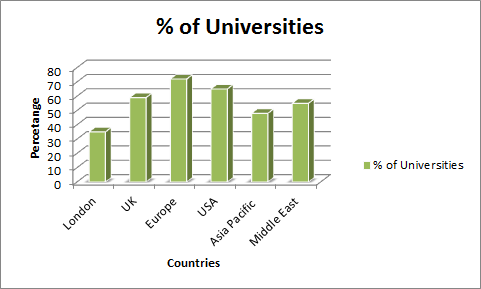
Major Research Associations related to Rare Diseases and Orphan Drugs
Alzheimer's Disease Organizations
Ann & Robert H. Lurie Children’s Hospital
Birmingham children’s Hospital
Boston Children’s Hospital
Canadian Organization for Rare Diseases
Chicago Rare Disease Foundation
Children’s hospital of Pittsburgh
Comer Children’s Hospital – University of Chicago
Cystic Fibrosis Foundation
European Union Committee of Experts on Rare Diseases
EURORDIS Rare Diseases Europe
EveryLife Foundation for Rare Diseases
Global Genes Allies in Rare Diseases
Guardian Hands Foundation
Hospitals Associated with Rare Diseases Research
IRDR Intractable & Rare Diseases Research
Japan Patient Association
Multiple Myeloma Research Foundation
National Alliances for Rare Diseases
National Institute of Health (NIH)
National Organization for Rare Diseases
Organization for Rare Diseases India (ORDI)
Orphan Europe
Philippine Society for Orphan Disorders
Rare Disease UK
Rare Diseases or Syndromes and Clinical Societies
Rare Diseases Patient Association Funding
Rare Diseases South Africa
Rare Diseases Translational Research Collaboration
Rare Disorders Society Singapore
RARE Foundation Alliance
Royal Society of Medicine
Short Bowel Syndrome Foundation
Students4RareDiseases
The Asia-Pacific Alliance of Rare Disease Organisations
The Boler-Parseghian Center for Rare & Neglected Diseases
The Boler-Parseghian Center for Rare & Neglected Diseases
The Children’s Hospital of Philadelphia
The Every Life Foundation for Rare Diseases
The Genetic and Rare Disorders Organization
The Greek Alliance for Rare Diseases
The Manton Center for Orphan Disease Research
U.S. Food and Drug Administration
UCLA Health
US hospital for Rare Disease Research

Major Companies Associated with Rare Diseases Research
Abbott Laboratories, UK
Actavis, USA
Aegerion Pharmaceuticals, Japan
Almirall, Spain
Amgen, USA
Amicus Therapeutics, USA
Amphastar Pharmaceuticals, Inc
Araim Pharmaceuticals
Astellas Pharma US
AstraZeneca, Switzerland
AstraZeneca, UK
Baxter International Deerfield
Bayer HealthCare, Germany
Bayer, Germany
Beacon Pharmaceuticals, Bangladesh
Biotie Therapies Corp, Finland
Bioxyne Limited, Australia
Boehringer Ingelheim, Germany
Centrapharm Ltd, UK
Chiesi Pharmaceutical, Italy
Cohero Health, USA
Daiichi Sankyo, Japan
Dohmen Life Science
European Medicines Agency
Forest Laboratories, USA
Gecko Health, USA
Generics (UK) Ltd, UK
Genus Oncology Vernon Hills, USA
Genzyme, USA
Gilead sciences, USA
GlaxoSmithKline, UK
Glaxosmithkline, UK
Gsk, London
Kissei Pharmaceutical Co., Ltd, Japan
Lallemand Pharma, Switzerland
Marathon Pharmaceuticals
Merck & Co, USA
Millennium Pharmaceuticals
Napp Pharmaceuticals Ltd, UK
Novartis, Switzerland
NPS Pharmaceuticals
Octapharma, USA
Onyx Pharmaceuticals, USA
Otsuka Holdings Co., Ltd, Japan
Panmira Pharmaceuticals, LLC, USA
Pearl Therapeutics, Inc
Pfizer, USA
PharmaMar, USA
Prosensa, Netherlands
PT Boehringer Ingelheim, Indonesia
Queensland Respiratory Laboratory Pty. Ltd, Australia
Ranbaxy Laboratories Limited
Raptor Therapeutics
Roche, Switzerland
Sanofi, France
Sarepta Therapeutics, USA
Sigma-Tau Pharmaceuticals, Italy
Sunovion Pharmaceuticals, USA
Swedish Orphan Biovitrum AB, Sweden
Takeda, Japan
Vertex Pharmaceuticals, USA
ViroPharma
ViroPharma
ViroPharma, USA
Visionary Pharmaceuticals, Inc, USA
Yungjin Pharm Ind. Co., Ltd, South Korea
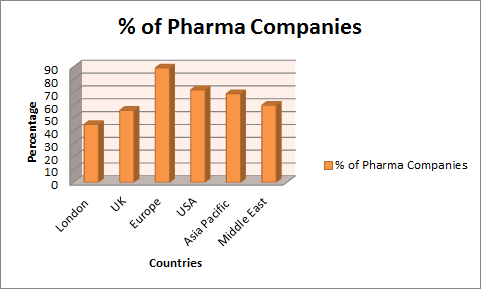
Market Research
There are more than 6,000 perceived uncommon diseases and it has been assessed that a further 5 are depicted every week.75% of rare diseases influence children.30% of rare disease patients die before 5 years old and,whilst each affects less than 0.1% of the population, the quantity of patients influenced by rare diseases is around 27-36 million in the EU, 25-30 million in the US, and 350 million people are affected around the world, but the true burden of rare diseases is difficult to estimate hard to evaluate subsequent to epidemiological information for most uncommon infections are not accessible. Among the rare diseases recognized and contemplated by EURORIDS it is found that 28.1% autosomal recessive inheritance,26.5% autosomal dominant inheritance, some are sporadic and few are with no etiology.There will be a steady increase in the cumulative number of diseases for which an orphan drug is approved, averaging just over 5 new diseases per year over the next 10 years. The annual per patient cost of global orphan drugs was varies between €1,251 and €407,631, with the median cost being €32,242 per year. The share of the total pharmaceutical market represented by orphan drugs is anticipated to increase from 3.3% in 2010 to a range of 4.6% in 2016 after which it is expected to level off through 2020. The global sales for orphan drugs are estimated at $178 billion, growing by11.7% per year, over the five year period between 2015 and 2020, nearly double the yearly growth of the overall prescription drug market, There are more than 6000 rare diseases are occurring. On the whole, rare diseases may affect 30 million European Union citizens, affects less than 1 in 2000.
Life expectancy
Among the couple of rare diseases studied it is found that 37.5% had ordinary lifespan - 25.7% possibly deadly during childbirth or before 5 years old - 36.8% lessened lifespan, depending on the seriousness, penetrance or type (child, juvenile or adult types) of the disease.
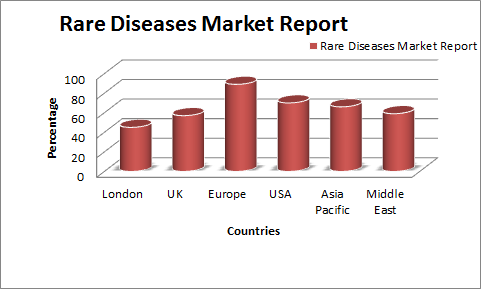
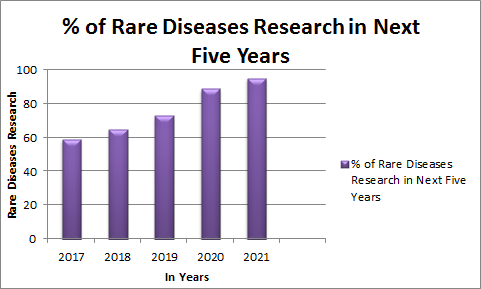
Funds for research
EU has declared 38 million euro financing for exploration towards orphan medicines and for the improvement of a central worldwide rare disease hub involving 70 institutions. The EU subsidizing encouraged the arrangement of multidisciplinary groups from colleges, research associations, SMEs, industry and patient associations from crosswise over Europe and beyond. National Institute for Health Research had released funds of £5 million for each annum for the Rare Diseases Translational Research Collaboration furthermore NIH funded 19 proceeding and new clinical examination consortia to fortify the progressing clinical exploration in rare diseases.
Conference Highlights
- Rare Diseases and its Cause
- Pediatric Rare Diseases
- Rare Ophthalmological Diseases
- Rare Metabolic Diseases
- Neurological Diseases
- Therapies for Rare Diseases
- Potency of Orphan Drugs
- Strategies for Diagnosis &Treatment
- Legal Issues Related to Rare Diseases
- Current research on Rare Diseases
- Rare Pulmonary Diseases
- Rare Disease in Oncology
- Genetic Diseases and Disorders
- Hematological Diseases
- Nursing and Rare Disease
- Rare Aging Diseases
- Rare Diseases due to Plastic Surgery
- Rare diseases in Nephrology
- Rare diseases of Endocrine System
- Rare diseases of Genitourinary System
- Rare Diseases of Immune System
- Rare Diseases of Lymphatic System
- Rare Diseases of Sexual Health
- Rare Gynecological and Obstetrical Diseases
- Rare Hereditary Diseases
- Rare Oral Diseases
- Rare Skin Diseases
- Other Rare Diseases
- Undiagnosed Rare Diseases
- Clinical Case Reports on Rare Diseases
- Clinical Research on Orphan Drugs
To share your views and research, please click here to register for the Conference.
To Collaborate Scientific Professionals around the World
| Conference Date | June 29-30, 2017 | ||
| Sponsors & Exhibitors |
|
||
| Speaker Opportunity Closed | Day 1 | Day 2 | |
| Poster Opportunity Closed | Click Here to View | ||
Useful Links
Special Issues
All accepted abstracts will be published in respective Our International Journals.
- Journal of Clinical Infectious Diseases & Practice
- Journal of Clinical Trials
- Journal of Neuroinfectious Diseases
Abstracts will be provided with Digital Object Identifier by










